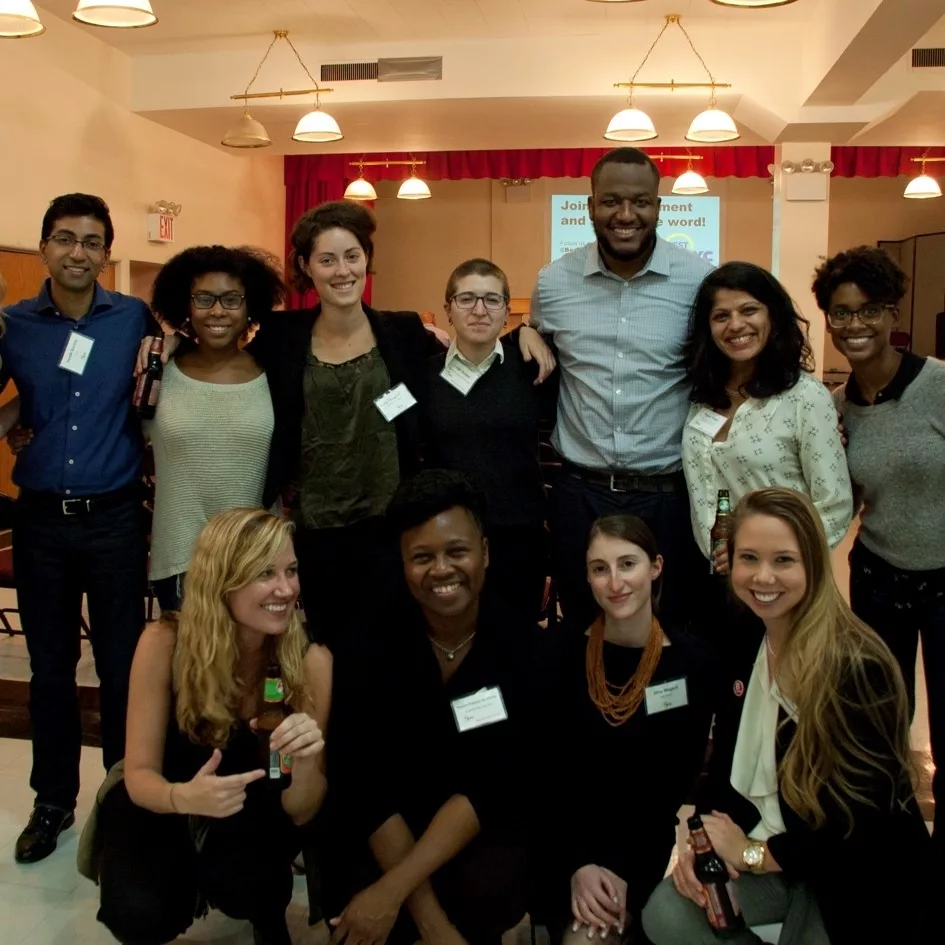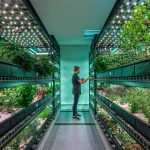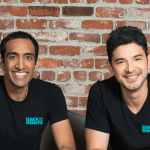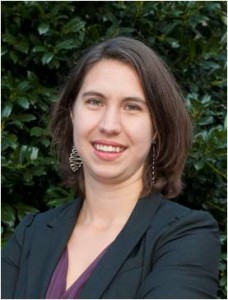 B Corporations are leaders in the growing movement to use business as a force for good. More companies than ever before are assessing their impact and seeking B Corp status to show they are meeting the highest standards of social and environmental performance, transparency, and accountability. There are now over 1500 B Corps spread across 42 countries, including companies such as Ben & Jerry’s, Patagonia, Warby Parker, and Mission Hub (the parent company of SOCAP). To grow the movement even more, B Lab, the nonprofit that assesses and certifies B Corps, has created the B Impact Fellowship, a program that provides training and professional development opportunities for the next generation of leaders in the impact economy. B Lab is now accepting applications to be part of their second cohort of Fellows. I recently talked to Heather Van Dusen, Director of the B Impact Fellows Program, about the successes they are seeing come out of the Fellowship and B Lab’s plans for the next cohort.
B Corporations are leaders in the growing movement to use business as a force for good. More companies than ever before are assessing their impact and seeking B Corp status to show they are meeting the highest standards of social and environmental performance, transparency, and accountability. There are now over 1500 B Corps spread across 42 countries, including companies such as Ben & Jerry’s, Patagonia, Warby Parker, and Mission Hub (the parent company of SOCAP). To grow the movement even more, B Lab, the nonprofit that assesses and certifies B Corps, has created the B Impact Fellowship, a program that provides training and professional development opportunities for the next generation of leaders in the impact economy. B Lab is now accepting applications to be part of their second cohort of Fellows. I recently talked to Heather Van Dusen, Director of the B Impact Fellows Program, about the successes they are seeing come out of the Fellowship and B Lab’s plans for the next cohort.
One of the goals of B Lab is to redefine success in business. How does this Fellowship serve that goal?
B Lab has been working to shine the light on leaders in impact over the past eight years through the B Corp Certification, but we know that in order to create broader cultural change we need to be talking to businesses who aren’t B Corps. We must reach out to companies that, though they might not identify with the social enterprise or sustainable business movement, would still really benefit and get value from being able to measure their impact.
“Partners like municipalities, business associations, chambers of commerce, and financial institutions want to learn about how to help their companies measure what matters, but often lack the expertise, time, or bandwidth to really launch an impact measurement program.”
We’ve found that there are a lot of partners who will enable us to reach out to companies we wouldn’t ordinarily get to work with. Partners like municipalities, business associations, chambers of commerce, and financial institutions want to learn about how to help their companies measure what matters, but often lack the expertise, time, or bandwidth to really launch an impact measurement program. The B Impact Fellows are helping those partner organizations bridge that gap and talk to companies about measuring their impact and how to take advantage of the tools we have developed to help businesses improve their performance.
“… if we’re going to build a movement, we have to leverage the leadership of those 1500 B Corporations to inspire change in the corporate behavior of the 7 million businesses in the United States and millions more around the world.”
The Fellows are working at the frontlines of the movement, which is why I am so excited about this program. They are talking to companies that wouldn’t necessarily seek out B Corp status and teaching them how to measure and improve their impact, while working with community partners across the country to really embed this kind of process into their programming. Reaching out into those broader communities of businesses is how we can encourage all companies to redefine the ways they measure success in their business. It can’t just be about the Certified B Corporation community – if we’re going to build a movement, we have to leverage the leadership of those 1500 B Corporations to inspire change in the corporate behavior of the 7 million businesses in the United States and millions more around the world.
Can you tell us about some of the results you’re seeing coming out of the first year of the B Impact Fellowship?
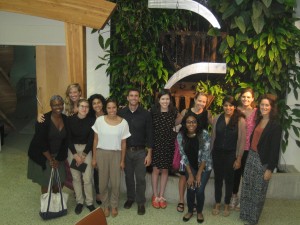 We’ve had amazing success. The first cohort was almost all placed in organizations around New York City to help launch and accelerate the Best for NYC Challenge, which is a campaign designed to encourage all companies in New York to measure what matters: the impact on their communities, employees, and environment. So far, the Fellows have been able to flip the numbers on the types of companies that are coming through the Best for NYC campaign versus the types of companies that are coming to the B Corporation and the B Impact Assessment process by themselves. Generally about 80% of the companies who register for the B Impact Assessment identify as sustainable businesses or social enterprises. And 20% are more traditional companies who might not identify themselves as such. The Fellows got hundreds of companies registered on Impact Assessments through that Best for NYC Challenge and 80% of those are companies that do not identify as social enterprises. It’s this kind of bridge building to groups of businesses who wouldn’t ordinarily seek us out that’s going to create the kind of change we want to see in the world.
We’ve had amazing success. The first cohort was almost all placed in organizations around New York City to help launch and accelerate the Best for NYC Challenge, which is a campaign designed to encourage all companies in New York to measure what matters: the impact on their communities, employees, and environment. So far, the Fellows have been able to flip the numbers on the types of companies that are coming through the Best for NYC campaign versus the types of companies that are coming to the B Corporation and the B Impact Assessment process by themselves. Generally about 80% of the companies who register for the B Impact Assessment identify as sustainable businesses or social enterprises. And 20% are more traditional companies who might not identify themselves as such. The Fellows got hundreds of companies registered on Impact Assessments through that Best for NYC Challenge and 80% of those are companies that do not identify as social enterprises. It’s this kind of bridge building to groups of businesses who wouldn’t ordinarily seek us out that’s going to create the kind of change we want to see in the world.
It has also been really exciting to hear stories about how companies are being inspired by this campaign. For instance, a granola company in Brooklyn was inspired by the story of Greyston Bakery, a company in Yonkers that gives folks who have barriers to employment – a history of incarceration or homelessness, etc – a second chance through their open hiring program. That company in Brooklyn is now working with Greyston Bakery to figure out how they can incorporate an open hiring program into their own business. Many more companies have learned about what it means to pay a living wage or how to reduce their environmental impact. The Fellows are developing relationships with partners who would not necessarily have been part of the B Corp movement who are now getting the word out and helping companies consider their impact.
The B Impact Fellowship is becoming a two-year program with a different focus each year. What are the differences between the two years?
We learned a lot over the course of our first year of the Fellowship. One of the biggest lessons was that there is a huge learning curve for the Fellows. This is really in-depth work and in order for Fellows to build a strong foundation of knowledge, not only in the Impact Assessment and the B Analytics tools, but also in how to lead workshops, how to work well with partners and companies, they needed to have more of an immersion experience in B Lab. So the next cohort will be part of the B Lab team for a full year doing re-certifications and on-site reviews and helping the Measure what Matters team with their cohort process so they understand everything at an in-depth level. Then in the second year, when the Fellows will go out to work with their community partners, they will know how to best apply all that they have learned.
One of the reasons that many people apply to become a Fellow is that they are inspired by the B Corp community and want to get a chance to work directly with them. Adding a second year to the program will allow for the next cohort to dive in and work more deeply with the community of B Corporations. By working with that community of Certified B Corporations, Fellows will have the opportunity to see examples of how people are creating impact at scale and learn from the leaders in the space.
What are some of the developments that B Lab hopes to see come out of the Fellowship Program?
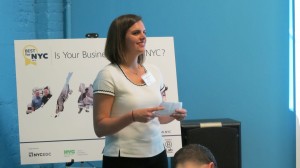 We are looking to figure out the best way to leverage B Lab’s tools to support Measure what Matters initiatives in a variety of community partners. This is a newer lens for B Lab, this focus on reaching out and building bridges to other communities of businesses and measuring their impact. So we are new to this. The focus of the Fellows Program is to engage those companies but, from a qualitative perspective, we hope to better understand what programs and resources we can develop for our partners to share or that companies can access individually, that make this idea of using business as a force for good something that is easy. Something that makes taking that first step towards measuring your impact not intimidating or too time consuming, but exciting and valuable for all the companies and parties involved.
We are looking to figure out the best way to leverage B Lab’s tools to support Measure what Matters initiatives in a variety of community partners. This is a newer lens for B Lab, this focus on reaching out and building bridges to other communities of businesses and measuring their impact. So we are new to this. The focus of the Fellows Program is to engage those companies but, from a qualitative perspective, we hope to better understand what programs and resources we can develop for our partners to share or that companies can access individually, that make this idea of using business as a force for good something that is easy. Something that makes taking that first step towards measuring your impact not intimidating or too time consuming, but exciting and valuable for all the companies and parties involved.
What skills, talents, and characteristics are you looking for in B Impact Fellows?
There are three skills that we are looking for in all Fellows. First and foremost would be passion for using business as force for good. We want this to be a springboard into a lifelong career in the impact economy. We want this opportunity to be a meaningful beginning to a career so having a passion for taking this learning into the future is critical.
Secondly, Fellows need to have really great communication skills across the board, whether presenting to the board of your partner about the results of the program or having a one on one conversation with a small business owner about the value of impact measurement. Both in person and written communication skills are necessary. Fellows should be able to break down and communicate ideas in a very clear way.
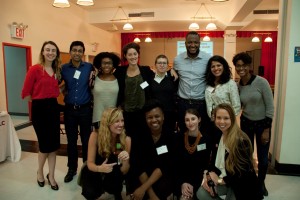 Connected to that is the third quality, relationship building skills. This entire movement, what we are really learning, is all about relationships. We can have all the best tools in the toolbox, but if we don’t have relationships with companies and partners we aren’t going to be able to bring this movement into other kinds of communities. This is really about connecting with people who are different from you; being able to communicate your values in different ways so that people can connect and really understand where you are coming from, as well as the long term vision. To help people understand that we are in this for the long haul, we are in this to change capitalism. And so to be able to bring that kind of long term view, even into a short term process, and build relationships is really going to be key to a successful fellow.
Connected to that is the third quality, relationship building skills. This entire movement, what we are really learning, is all about relationships. We can have all the best tools in the toolbox, but if we don’t have relationships with companies and partners we aren’t going to be able to bring this movement into other kinds of communities. This is really about connecting with people who are different from you; being able to communicate your values in different ways so that people can connect and really understand where you are coming from, as well as the long term vision. To help people understand that we are in this for the long haul, we are in this to change capitalism. And so to be able to bring that kind of long term view, even into a short term process, and build relationships is really going to be key to a successful fellow.
Beyond that, basic qualitative skills are necessary for analytics and assessment pieces. Fluency in a second language is highly recommended. A business background is useful, but not required. We want a diverse set of skills in our next cohort. That should include some folks with business backgrounds, but others as well so we have a diverse set of Fellows.
Is there a call to action you wish to issue the SOCAP community?
Apply or invite someone you think would be great to apply. If you have a company that is not yet a Certified B Corp, get involved. Take the assessment. The best way that we can improve our tools is to have companies actually go through and let us know how we are doing. It is actually a very useful tool for companies to be able to get a sense of their baseline impact and what best practices are out there. And spread the word!
Entrepreneurs: Apply For the B Impact Fellowship
The deadline for applying to be part of the 2016 – 2018 cohort of the B Impact Fellowship is March 18th, 2016.
